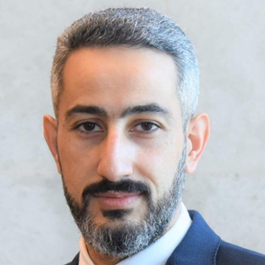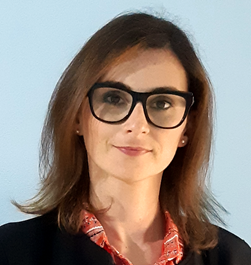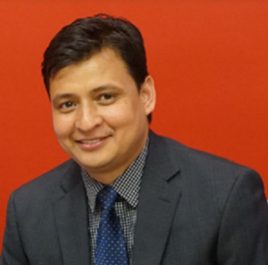Workshop on Mobile Edge Computing and Data Analytics for IoT (MECDA-IoT 2021)
Description
Future wireless networks expect to accommodate a huge number of Internet of Things (IoT) devices and provision low latency, context-aware services and applications in a flexible and efficient manner. To meet these peculiarities, one of the key approaches is mobile edge computing (MEC), which brings storage and computation resources in the proximity of mobile devices, to offer the end-users low-latency and high-bandwidth access to both information and computation resources. In addition, edge servers can facilitate data analytics to explore the hidden value of the collected data from IoT devices to support real-time decision making and provide value-added services.
MEC systems have to deal with many issues and real-time challenges. It should support various services with distinct quality of service (QoS) requirements in terms of latency, data rate, reliability, and so on. In addition, the service demands exhibit spatial and temporal dynamics due to bursty requests and user mobility. It is of importance to manage the heterogeneous communication and device type, storage, and computational resources that jointly affect the perceived performance of users. Artificial Intelligence (AI) is also an emerging technology that has helped many other technologies in predicting future events and outages. The use of AI to support MEC quests in managing IoT devices is highly on-demand. The objective of this workshop is to promote the benefits of MEC systems in IoT by addressing the aforementioned issues.
Chairs
Moayad Aloqaily, xAnanlytics Inc., Canada and Al Ain University, UAE
 Moayad Aloqaily received the M.Sc. degree in electrical and computer engineering from Concordia University, Montreal, QC, Canada, in 2012, and the Ph.D. degree in electrical and computer engineering from the University of Ottawa, Ottawa, ON, in 2016. He was an instructor in the Systems and Computer Engineering Department at Carleton University, Ottawa, Canada, 2017. He has been working with Gnowit Inc. as a Senior Researcher and Data Scientist since 2016. He is also the managing director of xAnalytics Inc., Ottawa, ON, Canada, 2019. Currently, he is with the Faculty of Engineering, Al Ain University, United Arab Emirates. His current research interests include the applications of AI and ML, Connected and Autonomous Vehicles, Blockchain Solutions, and Sustainable Energy and Data Management. He has chaired and co-chaired many IEEE conferences and workshops including BCCA2020, AdHocNets2020, PEDISWESA-ISCC2020, ITCVT-NOMS2020, E2NIoT-IWCMC2020, ICCN-INFOCOM19, AICSSA19, and BAT-FMEC19-20. He has served as a guest editor in many journals including IEEE Wireless Communications Magazine, IEEE Network, International Journal of Machine Learning and Cybernetics, Elsevier IPM Journal, Springer JONS, Springer Cluster Computer, Internet Technology Letters, Transaction on Telecommunications Technologies, Security and Privacy, and IEEE Access. He is an Associate Editor with Cluster Computing, Security and Privacy, IEEE Access, IET Quantum Computing. He has also been appointed the Co-EiC of IEEE CommSoft TC eLetter, 2020. He started his own Special Interest Group (SIG) on Blockchain and Application. He is an IEEE member, ACM Member, and a Professional Engineer Ontario (P.Eng.).
Moayad Aloqaily received the M.Sc. degree in electrical and computer engineering from Concordia University, Montreal, QC, Canada, in 2012, and the Ph.D. degree in electrical and computer engineering from the University of Ottawa, Ottawa, ON, in 2016. He was an instructor in the Systems and Computer Engineering Department at Carleton University, Ottawa, Canada, 2017. He has been working with Gnowit Inc. as a Senior Researcher and Data Scientist since 2016. He is also the managing director of xAnalytics Inc., Ottawa, ON, Canada, 2019. Currently, he is with the Faculty of Engineering, Al Ain University, United Arab Emirates. His current research interests include the applications of AI and ML, Connected and Autonomous Vehicles, Blockchain Solutions, and Sustainable Energy and Data Management. He has chaired and co-chaired many IEEE conferences and workshops including BCCA2020, AdHocNets2020, PEDISWESA-ISCC2020, ITCVT-NOMS2020, E2NIoT-IWCMC2020, ICCN-INFOCOM19, AICSSA19, and BAT-FMEC19-20. He has served as a guest editor in many journals including IEEE Wireless Communications Magazine, IEEE Network, International Journal of Machine Learning and Cybernetics, Elsevier IPM Journal, Springer JONS, Springer Cluster Computer, Internet Technology Letters, Transaction on Telecommunications Technologies, Security and Privacy, and IEEE Access. He is an Associate Editor with Cluster Computing, Security and Privacy, IEEE Access, IET Quantum Computing. He has also been appointed the Co-EiC of IEEE CommSoft TC eLetter, 2020. He started his own Special Interest Group (SIG) on Blockchain and Application. He is an IEEE member, ACM Member, and a Professional Engineer Ontario (P.Eng.).
Virginia Pilloni, University of Cagliari, Italy
 Virginia Pilloni received her PhD degree in Electronic and Computer Engineering with Doctor Europaeus mention from the University of Cagliari in 2013. In 2011 she spent 6 months at the Centre for Communications System Research (CCSR) at the University of Surrey (UK) as a visiting PhD student. She is now with the Multimedia and Communication Laboratory (MCLab) at the University of Cagliari. Her main research interests are focused on Internet of Things and ad-hoc networks, with particular attention to the improvement of their performance through task allocation. She is an expert evaluator of EU H2020 proposals. She has been involved in several national and international research projects, among which DEMANES (EU – 7FP) and QoE-NET (EU – H2020-MSCA-ITN-2014). She is an Editor of Elsevier Computer Networks and Frontiers in Communications and Networks. She has served as organization chair and program committee member of several international conferences.
Virginia Pilloni received her PhD degree in Electronic and Computer Engineering with Doctor Europaeus mention from the University of Cagliari in 2013. In 2011 she spent 6 months at the Centre for Communications System Research (CCSR) at the University of Surrey (UK) as a visiting PhD student. She is now with the Multimedia and Communication Laboratory (MCLab) at the University of Cagliari. Her main research interests are focused on Internet of Things and ad-hoc networks, with particular attention to the improvement of their performance through task allocation. She is an expert evaluator of EU H2020 proposals. She has been involved in several national and international research projects, among which DEMANES (EU – 7FP) and QoE-NET (EU – H2020-MSCA-ITN-2014). She is an Editor of Elsevier Computer Networks and Frontiers in Communications and Networks. She has served as organization chair and program committee member of several international conferences.
Ning Zhang, University of Windsor, Canada
 Dr. Ning Zhang is an Associate Professor in the Department of Electrical and Computer Engineering at University of Windsor, Canada. He received the Ph.D degree in Electrical and Computer Engineering from University of Waterloo, Canada, in 2015. After that, he was a postdoc research fellow at University of Waterloo and University of Toronto, Canada, respectively. His research interests include connected vehicles, mobile edge computing, wireless networking, and machine learning. He is a Highly Cited Researcher. He serves as an Associate Editor of IEEE Internet of Things Journal, IEEE Transactions on Cognitive Communications and Networking, and IEEE Systems Journal; and a Guest Editor of several international journals, such as IEEE Wireless Communications, IEEE Transactions on Industrial Informatics, IEEE Transactions on Intelligent Transportation Systems, and IEEE Transactions on Cognitive Communications and Networking. He also serves/served as a general chair for IEEE SAGC 2021, TPC chair for IEEE VTC 2021 and IEEE SAGC 2020, a track chair for several international conferences including IEEE ICC 2022, CollaborateCom 2021, IEEE VTC 2020, AICON 2020 and CollaborateCom 2020, and a co-chair for numerous international workshops. He received an NSERC PDF award in 2015 and 6 Best Paper Awards from IEEE Globecom in 2014, IEEE WCSP in 2015, IEEE ICC in 2019, IEEE ICCC in 2019, IEEE Technical Committee on Transmission Access and Optical Systems in 2019, and Journal of Communications and Information Networks in 2018, respectively.
Dr. Ning Zhang is an Associate Professor in the Department of Electrical and Computer Engineering at University of Windsor, Canada. He received the Ph.D degree in Electrical and Computer Engineering from University of Waterloo, Canada, in 2015. After that, he was a postdoc research fellow at University of Waterloo and University of Toronto, Canada, respectively. His research interests include connected vehicles, mobile edge computing, wireless networking, and machine learning. He is a Highly Cited Researcher. He serves as an Associate Editor of IEEE Internet of Things Journal, IEEE Transactions on Cognitive Communications and Networking, and IEEE Systems Journal; and a Guest Editor of several international journals, such as IEEE Wireless Communications, IEEE Transactions on Industrial Informatics, IEEE Transactions on Intelligent Transportation Systems, and IEEE Transactions on Cognitive Communications and Networking. He also serves/served as a general chair for IEEE SAGC 2021, TPC chair for IEEE VTC 2021 and IEEE SAGC 2020, a track chair for several international conferences including IEEE ICC 2022, CollaborateCom 2021, IEEE VTC 2020, AICON 2020 and CollaborateCom 2020, and a co-chair for numerous international workshops. He received an NSERC PDF award in 2015 and 6 Best Paper Awards from IEEE Globecom in 2014, IEEE WCSP in 2015, IEEE ICC in 2019, IEEE ICCC in 2019, IEEE Technical Committee on Transmission Access and Optical Systems in 2019, and Journal of Communications and Information Networks in 2018, respectively.
Danda B Rawat, Howard University, US
 Dr. Danda B. Rawat is a Professor in the Department of Electrical Engineering & Computer Science (EECS), Founder and Director of the Howard University Data Science and Cybersecurity Center, Director of DoD Center of Excellence in Artificial Intelligence & Machine Learning (CoE-AIML), Director of Cyber-security and Wireless Networking Innovations (CWiNs) Research Lab, Graduate Program Director of Howard CS Graduate Programs (including Graduate Cybersecurity Certificate) at Howard University, Washington, DC, USA. Dr. Rawat is engaged in research and teaching in the areas of cybersecurity, machine learning, big data analytics and wireless networking for emerging networked systems including cyber-physical systems, Internet-of-Things, multi domain operations, smart cities, software defined systems and vehicular networks. He has secured over $16 million in research funding from the US National Science Foundation (NSF), US Department of Homeland Security (DHS), US National Security Agency (NSA), US Department of Energy, National Nuclear Security Administration (NNSA), DoD and DoD Research Labs, Industry (Microsoft, Intel, etc.) and private Foundations. Dr. Rawat is the recipient of NSF CAREER Award in 2016, Department of Homeland Security (DHS) Scientific Leadership Award in 2017, Provost’s Distinguished Service Award 2021, Researcher Exemplar Award 2019 and Graduate Faculty Exemplar Award 2019 from Howard University, the US Air Force Research Laboratory (AFRL) Summer Faculty Visiting Fellowship 2017, Outstanding Research Faculty Award (Award for Excellence in Scholarly Activity) at GSU in 2015, the Best Paper Awards (IEEE CCNC, IEEE ICII, BWCA) among others. He has delivered over 30 Keynotes and invited speeches at international conferences and workshops. Dr. Rawat has published over 200 scientific/technical articles and 11 books. He has been serving as an Editor/Guest Editor for over 70 international journals including the Associate Editor of IEEE Transactions of Service Computing, Editor of IEEE Internet of Things Journal, Associate Editor of IEEE Transactions of Network Science and Engineering and Technical Editors of IEEE Network. He has been in Organizing Committees for several IEEE flagship conferences such as IEEE INFOCOM, IEEE CNS, IEEE ICC, IEEE GLOBECOM and so on. He served as a technical program committee (TPC) member for several international conferences. Dr. Rawat is a Senior Member of IEEE and ACM, a member of ASEE and AAAS, and a Fellow of the Institution of Engineering and Technology (IET).
Dr. Danda B. Rawat is a Professor in the Department of Electrical Engineering & Computer Science (EECS), Founder and Director of the Howard University Data Science and Cybersecurity Center, Director of DoD Center of Excellence in Artificial Intelligence & Machine Learning (CoE-AIML), Director of Cyber-security and Wireless Networking Innovations (CWiNs) Research Lab, Graduate Program Director of Howard CS Graduate Programs (including Graduate Cybersecurity Certificate) at Howard University, Washington, DC, USA. Dr. Rawat is engaged in research and teaching in the areas of cybersecurity, machine learning, big data analytics and wireless networking for emerging networked systems including cyber-physical systems, Internet-of-Things, multi domain operations, smart cities, software defined systems and vehicular networks. He has secured over $16 million in research funding from the US National Science Foundation (NSF), US Department of Homeland Security (DHS), US National Security Agency (NSA), US Department of Energy, National Nuclear Security Administration (NNSA), DoD and DoD Research Labs, Industry (Microsoft, Intel, etc.) and private Foundations. Dr. Rawat is the recipient of NSF CAREER Award in 2016, Department of Homeland Security (DHS) Scientific Leadership Award in 2017, Provost’s Distinguished Service Award 2021, Researcher Exemplar Award 2019 and Graduate Faculty Exemplar Award 2019 from Howard University, the US Air Force Research Laboratory (AFRL) Summer Faculty Visiting Fellowship 2017, Outstanding Research Faculty Award (Award for Excellence in Scholarly Activity) at GSU in 2015, the Best Paper Awards (IEEE CCNC, IEEE ICII, BWCA) among others. He has delivered over 30 Keynotes and invited speeches at international conferences and workshops. Dr. Rawat has published over 200 scientific/technical articles and 11 books. He has been serving as an Editor/Guest Editor for over 70 international journals including the Associate Editor of IEEE Transactions of Service Computing, Editor of IEEE Internet of Things Journal, Associate Editor of IEEE Transactions of Network Science and Engineering and Technical Editors of IEEE Network. He has been in Organizing Committees for several IEEE flagship conferences such as IEEE INFOCOM, IEEE CNS, IEEE ICC, IEEE GLOBECOM and so on. He served as a technical program committee (TPC) member for several international conferences. Dr. Rawat is a Senior Member of IEEE and ACM, a member of ASEE and AAAS, and a Fellow of the Institution of Engineering and Technology (IET).
Paper Scheduling
- Paper ID: 5088
- Paper ID: 5260
Organized on – 29th June, 2021 at 10:30 – 11:30 EDT
| 10:30 – 10:40 | Introduction by session chairs |
| 10:40 – 11:05 | [Q&A with paper presenter 1] – Asynchronous Hybrid Deep Learning (AHDL): a Deep Learning Based Resource Mapping in DVFS Enabled Mobile MPSoCs |
| 11:05 – 11:30 | [Q&A with paper presenter 2] – Environmental Sound Classification with Tiny Transformers in Noisy Edge Environments |
Speakers


